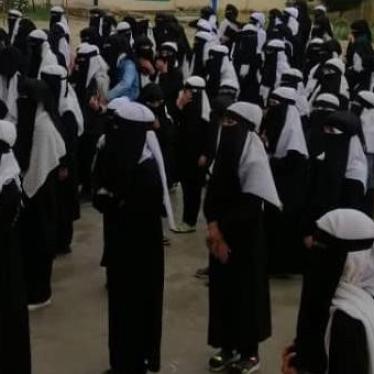Often described as the world's largest prison camp, no country is more deserving of international condemnation on human-rights conditions than North Korea. And today the United Nations Commission on Human Rights has the chance to do just that, as it votes on a resolution condemning human-rights abuses in the isolated Orwellian state.
The human-rights situation in North Korea is so abysmal that the normally gutless commission is likely to pass it, for the second consecutive year. But the real challenge is finding ways to improve human rights for the millions of North Koreans who go to bed hungry every night, live in fear of the country's ubiquitous police and their informers, and languish in a homegrown gulag.
Pyongyang flatly denies all allegations of human-rights abuses, though arbitrary executions, torture, forced labor and strict limits on freedom of speech and association have been amply documented. North Korea is a country where collective punishment against entire families is used to respond to political dissent, whether actual or perceived. The family of the "perpetrator" is sent to forced-labor camps -- sometimes for the rest of their lives. Leaving the country without official permission is considered an act of treason, punishable by the death penalty, which is why China must end its practice of returning North Koreans.
In North Korea, imprisoned women are often forced to abort fetuses and prisoners are routinely executed in public, often in the presence of children. Pluralism and civil society are nonexistent. There is no religious or press freedom.
Long isolated by choice, Pyongyang appears to have finally acknowledged it cannot survive without major changes in its economy. The world's last truly command economy began a program of economic reforms last July, hoping to revive its all-but-dead domestic economy and draw in foreign investment to bail out the system. The government drastically hiked the prices of many goods to market levels, ended subsidies to failing state businesses, and legalized some farmers' markets.
Foreign visitors -- journalists, aid workers and tourists -- report that vibrant street markets have sprung up in Pyongyang and other cities where foreigners are allowed to travel, although only with an escort. Large signs advertising consumer products made in North Korea have emerged on roadsides. However, economic reforms have also reportedly displaced a large number of state workers. Many have been laid off, others became part-time employees, and some are no longer paid, worsening the chronic hunger problem for some of the most vulnerable sections of the population.
Kim Jong Il and others in North Korea's leadership have not yet figured out that neither massive aid nor significant investment will flow into the country until they show a willingness to introduce serious political reforms, chiefly respect for basic human rights. Few multinational companies will want to do business in contemporary North Korea, uncertain of their investment and risking the wrath of human-rights activists and consumers by making products in a country where strikes, collective bargaining and any other form of organized labor activities are strictly banned and violation can result in harsh punishment. Until Pyongyang institutes such reforms, it has no hope of attracting sufficient foreign investment to save its economy.
The international community must do more to help encourage change in North Korea. Governments engaged in diplomatic, economic or other talks with Pyongyang should place human rights high on their agenda, and aggressively press North Korea to end its repression of fundamental freedoms.
China should respect its international legal obligations to protect North Korean refugees and asylum seekers in its territory, instead of arresting and forcibly repatriating them to North Korea, where they face torture, imprisonment, and even execution. China should also allow United Nations High Commissioner for Refugees Ruud Lubbers and international aid organizations access to the North Koreans so that they can interview asylum seekers for resettlement while providing shelter, clothing and food.
Pyongyang should engage in a dialogue with a representative of the United Nations High Commissioner for Human Rights, as was proposed in a similar resolution passed by the commission last year. The first item on the agenda should be visits to its prison camps, as North Korean Vice Foreign Minister Kim Gye-gwan suggested at a meeting with officials from the U.S. Senate Foreign Relations Committee late last year. According to a report by the officials, Mr. Kim said North Korea would allow nongovernmental organizations access to prison camps on a "case by case" basis, although he did not elaborate.
North Korea should also accept repeated requests for a visit by Jean Ziegler, the U.N. Special Rapporteur on the right to food, and help establish an accountable network for aid distribution, including in areas where World Food Programme officials are currently not allowed to visit. Furthermore, North Korea should allow visits by U.N. officials working on freedom of expression and religion.
Millions of North Koreans have perished in silence from starvation, torture and execution in recent decades. Many children are stunted for life because of hunger. It's time for concerted action to ensure this generation of North Koreans does not endure the same miserable lives as their parents and grandparents.
Kay Seok is a consultant on North Korea for Human Rights Watch.





